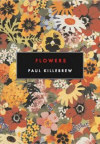Flowers
I’m a sucker for well-played formalism. Mongrel poetry; pedigreed from sestinas and villanelles, but – some earlier generation having snuck out the back with a scraggly beat poet – nearly unrecognizable, with crooked teeth and fantastic, durable hips.
I’m a sucker for well-played formalism. Mongrel poetry; pedigreed from sestinas and villanelles, but – some earlier generation having snuck out the back with a scraggly beat poet – nearly unrecognizable, with crooked teeth and fantastic, durable hips.
I like them because of the thrill received when I finally catch on to the loose pattern half-way through the poem. It’s partly the thrill of jealousy – how can a poet get away with using the same word [at least] twice in the same 14 line poem? (Robert Bly: “I wonder what Yeats / had to pay in order to do that.”)
As such, I found “I Will Learn To Make You Happy,” particularly stimulating:
We should get married, and time
would be a shared burden.
I believe in value, do you
know what I mean? My dad
was a salesman. Later an artist.
He decided to dampen the mood.
He doesn’t believe in fashion,
but I do. Do you want to get
married? This is what I had
in mind: colors, a happy mood,
light and flowers. But you’re so
worn out all the time, and I
will learn to threaten you
with value. Now you’re back
with your amnesiac’s burden,
a flimsy excuse to dampen the mood.
The spiraling phrase repetition and word play of Killebrew’s Formalism Lite is the literary version of a mutt chasing its tail and still arriving at its destination. (I once knew of a dog who would use calculus to fetch Frisbees in Lake Michigan. It’s a little like that, too.)
Actually, “I Will Learn To Make You Happy” is one of the more obviously formal poems of the collection. Overall, the influence of traditional formalism is quite disguised in Flowers, although it is hardly subtle (like garlic, can any formalism be subtle?). Formal poetry is marked by the gravitational tug caused by its pattern, which pulls each line into a purposeful end. Incredibly – and provoking of yet more envy – Killebrew mimics the movement of formal poetry without any visible field markers like rhyme or repetition. From “Kicking Corporate Ass in the Foosball Arena,”
Frankly it’s all hopscotch and shoelaces to me,
but don’t let me stop you from shining your flashlight
into the tremendous gap between the refrigerator
and the conscientious voter.
His lines zigzag from end to end, driving through as if they’ve caught a scent.
Besides being entertaining (the thrill, remember), Killebrew’s incorporation of new formalism into this body of work suggests the masterful designer within his talent: he knows when and how much to use to get just the right end results.
Although, however great his pseudo-formalist style, the final lines of “Kicking Corporate Ass…” are what made me first take notice of Flowers: “I don’t mean to sound dismissive; I like people. / But what I really like is space.” It sounds like something my dog would say.





